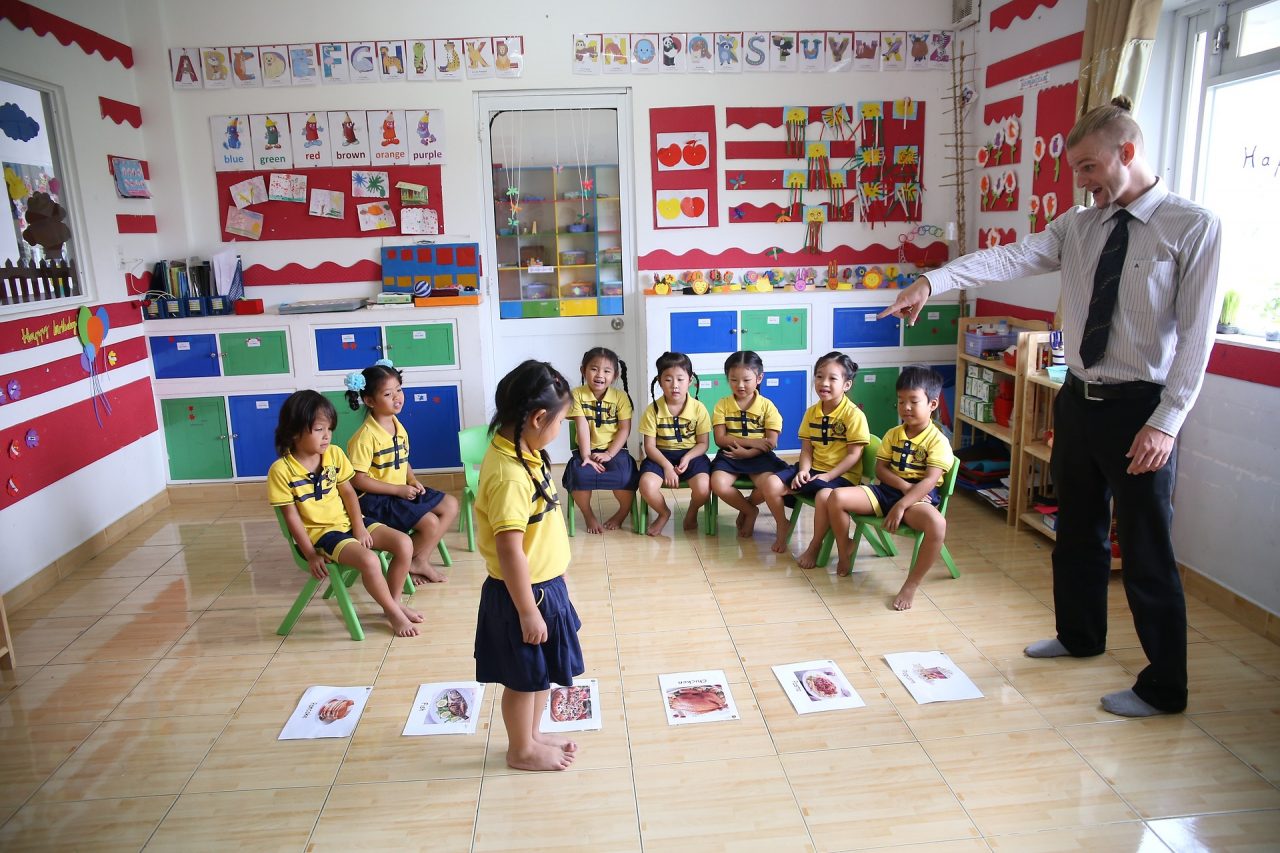

Teaching first and second grade in Japan

In many elementary schools in Japan, first and second graders do not have frequent English lessons. This isn’t always the case, in some cities they seek to have them every other week. However, my schools have typically only had them anywhere from seven to ten times a year.
Little kids will not become fluent in English in just 10 lessons. Even biweekly lessons in fifth and sixth grade classes only manage to teach kids basic conversational skills. Despite this, I aimed to instill as much English content in those little kids’ heads as possible. I tried to make everything super fun. I also naively expected kids to remember a set word list.
That was not the case. Even if you do everything “right”, with only one 45 minute lesson once a month, most six-year-olds are not going to memorize an entire list of farm animals. This is true no matter what songs, mnemonics or games you use.
I had the biggest realization from talking to a third grader. She came up to me and talked about an activity we did when she was in first grade. She didn’t remember what the vocabulary words were, she simply remembered how much fun she had. Students didn’t remember Halloween vocabulary, but they remembered having fun making Halloween masks. From a very young age, they remembered that English was fun.
Why is it important to make English fun?
Once students reach fifth grade, they start English tests. Once they reach junior high and high school, English becomes even more grammar-based. It is very easy to lose kids from fifth grade as they start to view English as a subject that they have to study for and isn’t just all fun and games. But you can start by trying to reach the little ones early so they have that good association last in them when they get older. Instead of trying to fill a kid’s brain with words they are likely to forget, your goal should be to teach them to associate English with fun.

How to make English lessons fun for first and second grade
I’ve started to work backwards when planning English lessons for first and second graders. It varies widely, but I often think of a fun activity or holiday first. For example, with Halloween you may think of Jack-o-Lanterns. You can print out blank pictures of pumpkins and have students design their own.
This leads to the second part. I try to teach them English words more subconsciously as natural parts of the lesson. Instead of holding up flashcards with body parts, we sing Head, Shoulders, Knees and Toes every lesson along with other songs. Instead of teaching them words like eyes, nose, ears, etc, I incorporate the words casually into the lesson when we play Pin the Face on the Jack-o-Lantern. We used body part words when they design their own monsters or robots. Instead of having a lesson specifically dedicated to first graders counting 1-10, I try to incorporate kids counting in every lesson. Repetition is also key.
How to teach your culture to young students in Japan
As an ALT in Japan, I also try to incorporate culture. I teach Christmas Around the World, where students will along the way learn country names in English as well as how to say Merry Christmas in different languages. I teach Hanukkah (with HRTs explaining the background at their discretion to avoid “teaching religion”) and have them play dreidels. Since I am from Hawaii, I also do a Hawaii-specific lesson where I teach the kids a hula dance.
All of these do not have a vocabulary theme like “foods” or “animals” but through these themes, many English words will come up naturally. They also get to enjoy the “foreign” part of “foreign language activities” and learn about the world and where they can go if they learn English. The important thing, is expanding their young minds and making them truly want to learn English and experience the big world around them.
A. C. – Fujimino ALT
Looking for new ALT job in Japan? Apply to join RCS today and learn why our ALTs feel supported.






